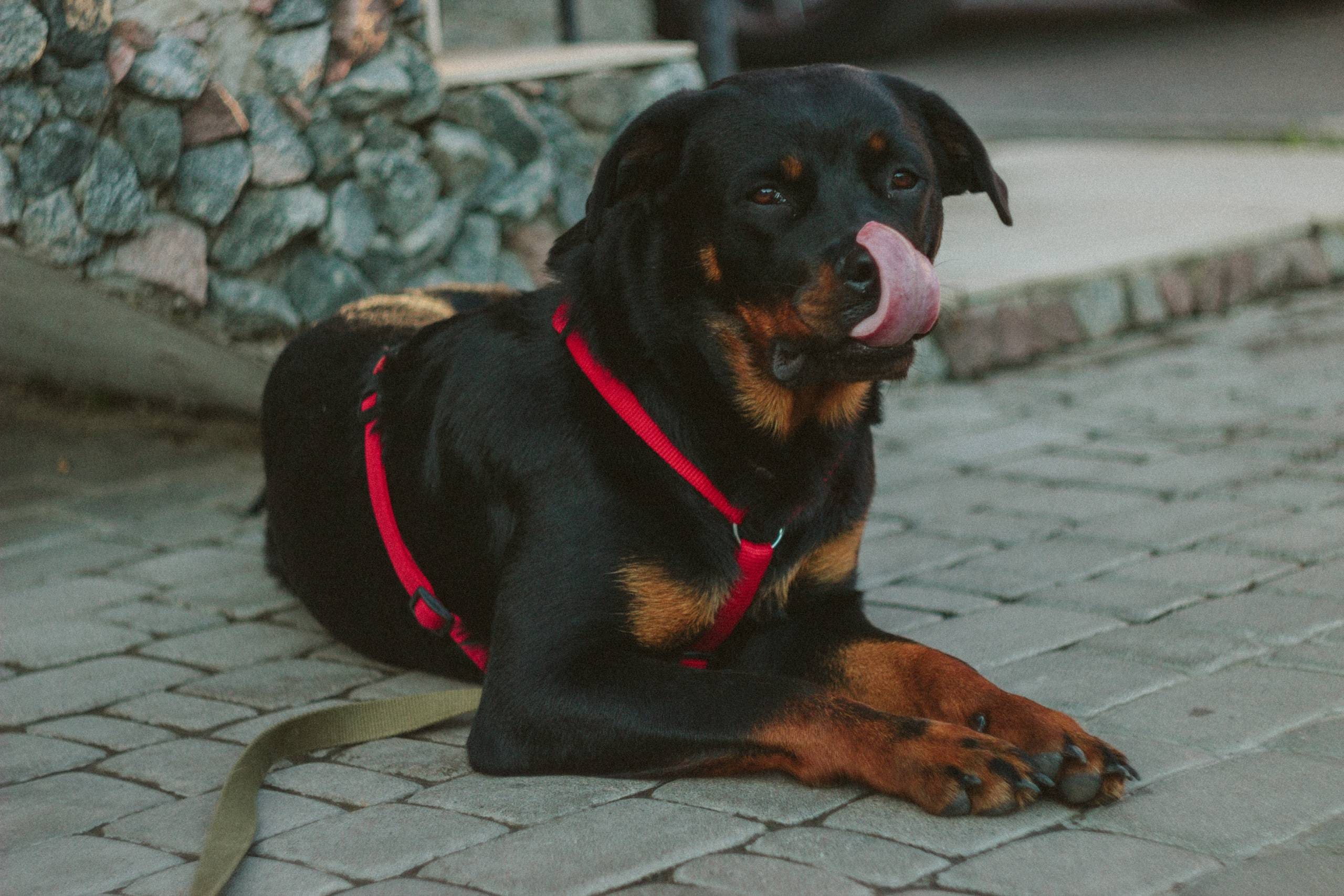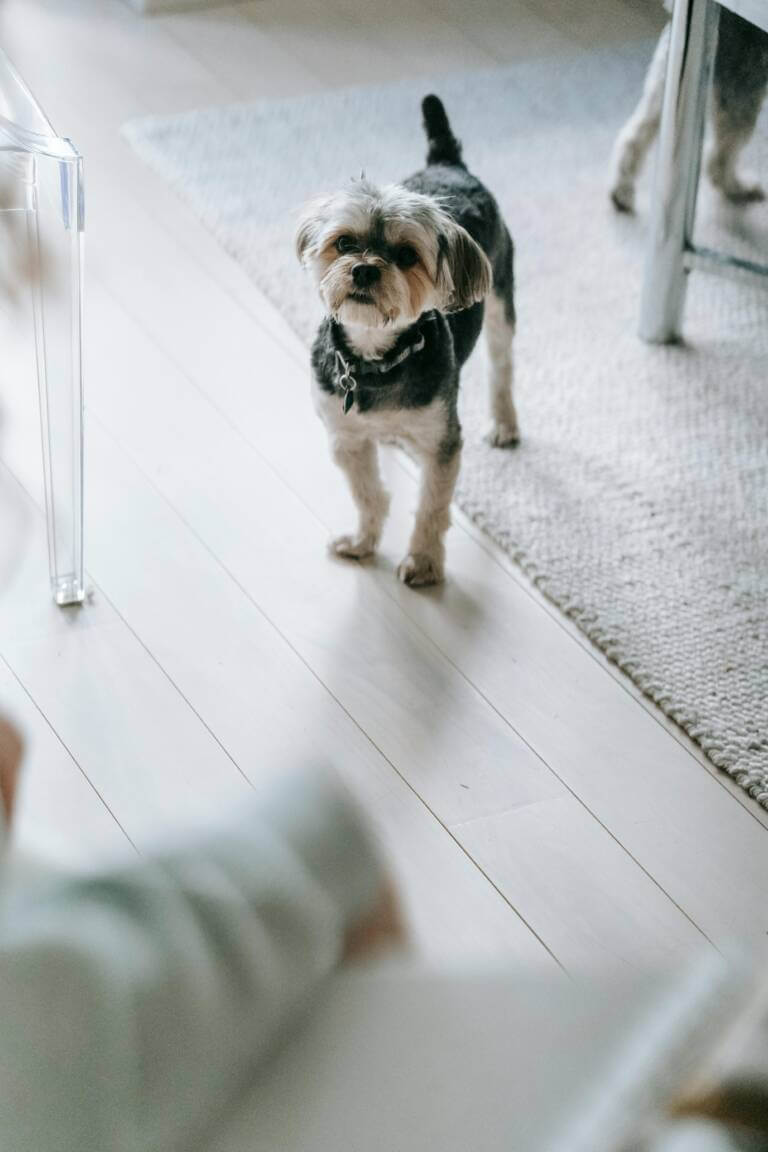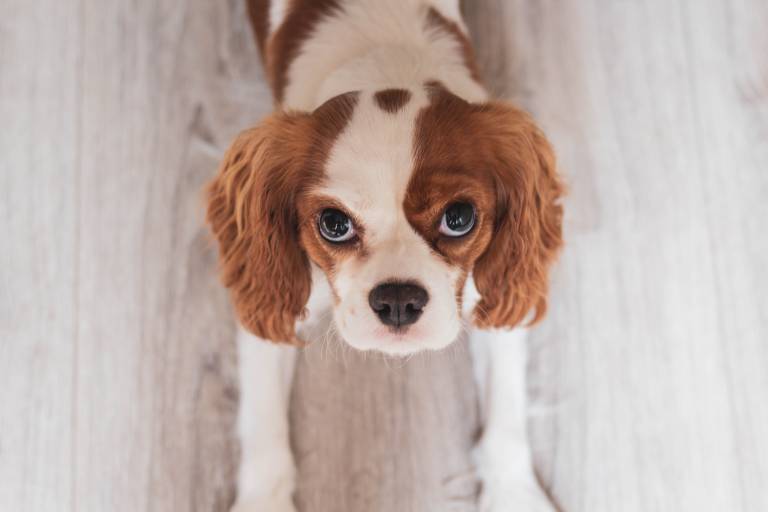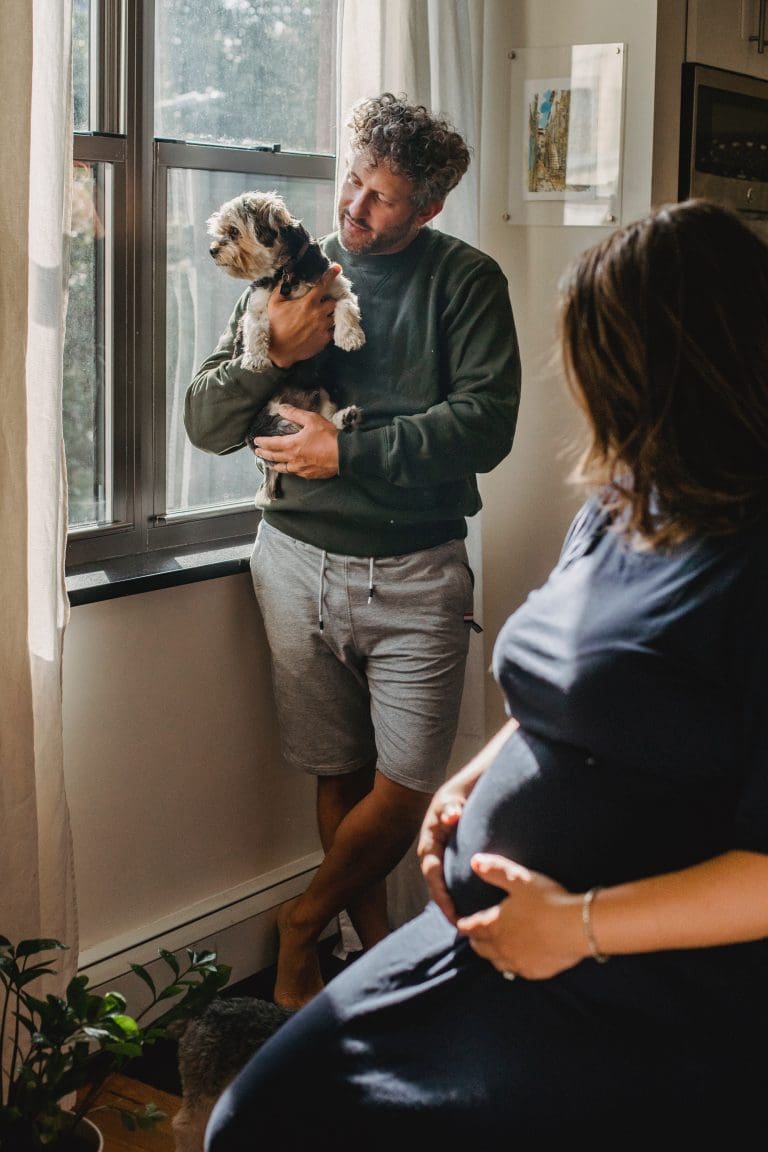Do Rottweilers Growl When Happy?
Post Date:
December 10, 2024
(Date Last Modified: November 13, 2025)
Growling is one element of canine communication that combines sound with posture and context to convey intent and emotion. Rottweilers, like other dogs, use growls alongside body language to signal a range of states from play to threat.
Understanding canine growling
A growl is a low-pitched vocalization produced by airflow over the larynx, shaped by the oral cavity and resonant structures; it functions as part of a multimodal signaling system that includes posture, facial expression, and movement. Growling can serve at least four functional purposes: warning, play, frustration, and contentment.[1] In practice, dogs rarely depend on a single signal; a growl is interpreted in the context of tail carriage, ear position, and the sequence of preceding actions rather than by the sound alone.
Rottweiler vocal traits and tendencies
Breed tendencies influence how often and in what situations a dog vocalizes. Adult Rottweilers typically weigh between 80 and 135 lb (36–61 kg) and stand about 22–27 in (56–69 cm) at the shoulder, which contributes to a relatively deep chest and vocal tract that favors lower-pitched sounds compared with smaller breeds.[2] Historically bred for driving cattle and guard duties, Rottweilers were selected for confidence and a measured use of vocal signals rather than constant barking, so many individuals favor occasional, low rumbling vocalizations over high-frequency barking when communicating intent.[2] Owners commonly report a mixture of growls during play sessions, guarded vocalizations when protecting resources, and short greeting growls that accompany excited approaches.
Do Rottweilers growl when happy?
Yes—growls can indicate positive arousal in many breeds, including Rottweilers, when the acoustic pattern and body language match playful or affiliative contexts. Play growls frequently occur in short bursts; they can last 1–3 seconds per burst and may repeat at intervals of about 2–5 seconds during intense play bouts.[3] Greeting or contented rumbling during petting is typically lower in intensity, produced with relaxed breathing and often paired with leaning into the handler rather than stiff forward motion.[3] Frequency and expression vary by individual: some Rottweilers use playful growls multiple times per play session, while others remain mostly silent and communicate visually.
Acoustic differences: playful vs aggressive vs fearful growls
Acoustic analyses identify measurable differences that tend to correlate with behavioral context, though overlap is common and human perception remains imperfect. Playful growls often have higher harmonic content and faster modulation, while aggressive growls commonly show lower fundamental frequency and greater sustained energy. Reported pitch ranges associated with growl types can differ markedly between studies, and context remains essential for interpretation.[3]
| Growl type | Typical pitch range (Hz) | Typical duration (s) | Common context |
|---|---|---|---|
| Playful growl | 300–600 | 0.5–3 | Play with humans or dogs |
| Aggressive growl | 150–350 | 1–4 | Threat, guarding resources |
| Fearful growl | 200–450 | 0.5–2 | Startle or constrained escape |
| Content rumble | 250–500 | 0.5–2 | Petting, gentle greeting |
Humans use pitch, intensity, and repetition patterns to judge intent, but perceptual errors occur because some characteristics overlap across emotional states. For example, a low, sustained growl might be aggressive in one setting and simply a low-contented rumble in another; therefore acoustics should always be read alongside visual and contextual cues.[3]
Contextual cues that change growl meaning
Context dramatically shifts interpretation. The presence of toys, play partners, or invitation gestures (such as a play bow) increases the probability that a growl is playful, whereas proximity to high-value resources like food or a favored resting spot increases the probability that a growl is guarding-related. Temporal context matters: growling during a rough-and-tumble session that immediately precedes resumed play is likely different in intent from a growl that occurs when a dog is stopped from accessing a valued object. Finally, recent triggers—such as being startled, physically pained, or previously provoked—alter the baseline meaning of the same acoustic signal.
Body language that confirms happiness
- Relaxed, loose body posture with soft movements and a wag that shifts through the hips rather than a rigid high carriage.
- Play bow (front end lowered, hind end raised), often held for a few seconds and repeated during play sequences.
- Soft eyes with half-closed eyelids, mouth slightly open and relaxed, and relaxed whisker and lip position.
- Vocal-plus-visual clusters such as short, repeated play growls combined with active role-switching and self-handicapping behaviors during dog-to-dog play.
Signs that a growl is not happy
Caution is warranted when growling appears with stiff posture, a fixed stare, raised hackles along the spine, or a tightly closed mouth with lips pulled back to expose teeth. Escalation signs include snapping, lunging, or a sudden cessation of movement followed by a lunge; these changes indicate that the signal may have shifted toward defensive or offensive intent. Resource guarding—where a dog growls when approached while possessing food, toys, or resting space—merits behavior modification or professional input because it can progress to bites if not managed appropriately.[4]
Developmental and individual differences
Puppy play typically features exaggerated vocalizations and frequent growling as part of learning bite inhibition and social rules; many puppies peak in playful vocal activity between 2 and 6 months as social play intensifies, then modulate those signals as adult social cognition matures.[3] Poor socialization, traumatic experiences, or untreated medical problems can increase fear- or pain-related growling in adult dogs. Individual temperament also plays a major role: two Rottweilers from the same litter can show markedly different vocal tendencies due to personality and reinforcement history.
Training and management strategies
Owners can encourage appropriate use of vocal signals and reduce risky growling through consistent training and environmental management. Reinforce calm greetings and alternative behaviors (for example, teaching a dog to sit for attention) using short, frequent sessions; aim for at least 5–10 focused repetitions per short training session and multiple sessions per day for rapid learning on simple cues.[5] Teach reliable cues for “leave it” and recall so that an owner can remove a dog from an escalating situation before aggressive signaling becomes necessary. Avoid punishment that suppresses visible signals; hiding or silencing a dog’s growl without addressing the underlying trigger can increase the risk of un-signaled bites.
When to consult professionals
Seek veterinary evaluation if a dog’s growling starts suddenly, increases in frequency, or escalates in intensity over a short period such as less than 2 weeks, since changes in behavior can reflect pain, neurologic events, or metabolic problems that require treatment.[4] Consult a certified applied animal behaviorist or a veterinary behaviorist when resource guarding is persistent, when there are repeated escalation events, or when safety for handlers or household members is a concern. If growling co-occurs with signs of pain, change in appetite, or mobility issues, begin with a veterinarian to rule out medical causes before or while initiating behavior modification.[4]
Owners who observe growling in a Rottweiler can balance safety with preserving natural communication by learning to read signals and by shaping alternative behaviors.
Training and management strategies (continued)
Begin training by setting up brief, frequent practice sessions that focus on reinforcing calm alternatives to vocal escalation. Start with 3–5 minute sessions, repeated 2–3 times per day, to teach a reliable greeting routine such as “sit for attention” before petting or door greetings; short, consistent repetitions encourage faster learning and reduce stress-related vocal responses[5]. Use high-value, small treats during early training — for many dogs a treat portion of roughly 0.1–0.2 ounce (3–6 g) per reinforcement is effective when practicing many repetitions in a session, though adjust for caloric needs and body condition[2].
For play-related growling that is clearly affiliative, shape controlled play by teaching a clear “start” and “stop” cue: offer an explicit play signal (toy presentation plus a named cue), allow play for a fixed interval such as 30–90 seconds, then give a calm “all done” cue and remove the toy for a short pause before resuming; predictable structure reduces ambiguous escalation and helps the dog learn the boundaries of acceptable arousal[5]. If a dog repeatedly escalates after the stop cue, temporarily end play and return to calmer interactions to reinforce the owner’s control and the dog’s ability to down-regulate excitement.
When addressing resource guarding or growling around possessions, use desensitization and counterconditioning protocols conducted at a distance or barrier so the dog can remain below threshold. For example, begin by approaching only to a distance where the dog shows no defensive signaling and then drop a high-value treat while moving away; repeat many times so the dog learns that the human approaching predicts better outcomes, then gradually decrease distance over multiple sessions occurring across days to weeks depending on the dog’s comfort level[3]. If progress stalls or the dog gives clear escalation signals, pause and consult a certified behavior professional rather than forcing closer contact.
Avoid punishment aimed at silencing growls. Suppression of warning signals can remove the dog’s ability to communicate discomfort and increase the risk of bites without warning. Instead, pair behavior modification with environmental management such as gating, removing high-value items during unsupervised periods, and storing tempting objects out of reach to reduce conflict opportunities while training continues[4].
When to consult professionals (continued)
Professional intervention is recommended when owner-led strategies fail to reduce concerning growling within a reasonable timeframe or when the severity presents immediate safety concerns. Thresholds that commonly prompt referral include repeated escalation toward snapping or biting during routine interactions, growling that increases despite consistent training for more than 2–4 weeks, or onset of growling coincident with signs of physical illness such as limp, guarding of a body region, or reduced appetite[4]. A veterinarian can perform a physical exam and basic diagnostics to identify pain or neurologic issues; if medical causes are ruled out, a certified applied animal behaviorist or board-certified veterinary behaviorist can design a tailored behavior modification plan and supervise desensitization protocols.
For long-term management, combine professional guidance with owner education about reading multimodal signals. Records of incidents—documenting the precise context, preceding events, and the dog’s complete body language—help professionals identify patterns and tailor interventions. Owners should also ensure that safety tools such as crates, baby gates, and sturdy leashes are available so that potentially risky interactions can be temporarily controlled while working on behavior change[5].
Rottweilers that are well-socialized, physically healthy, and given structured opportunities for exercise and mental enrichment typically show clearer, more predictable signaling and fewer ambiguous growls. Conversely, dogs with unmet physical or social needs, or those with a history of trauma, may rely more on vocal and defensive signals. Regular wellness exams and preventative care help reduce the chance that growling reflects an undetected medical problem[2].
When owners combine attentive observation of context, appropriate reinforcement of calm alternatives, and timely professional support for persistent or escalating problems, they can preserve a Rottweiler’s natural communicative repertoire while minimizing risk and improving human–dog relationships.






